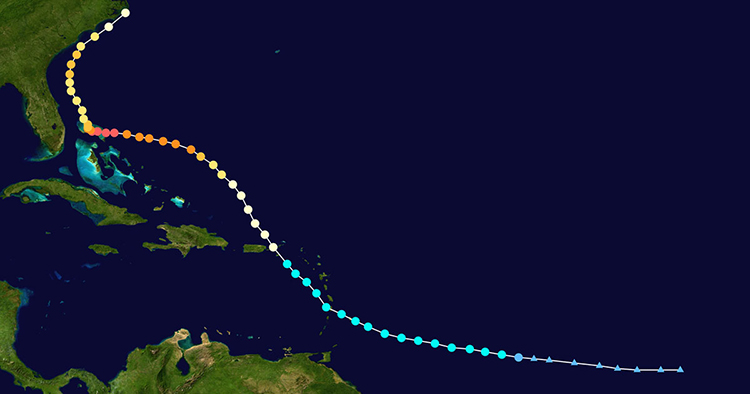Tropical Meteorology Project researchers predict active Atlantic hurricane season
Colorado State University hurricane researchers are predicting an above-average Atlantic hurricane season in 2020, citing the likely absence of El Niño as a primary factor. Tropical and subtropical Atlantic sea surface temperatures are currently warmer than their long-term average values and are consequently also considered a factor favoring an active 2020 Atlantic hurricane season.
The tropical Pacific currently has warm neutral ENSO (El Niño-Southern Oscillation) conditions; that is, the waters are slightly warmer than normal in the eastern and central tropical Pacific. CSU currently anticipates that these waters are likely to cool relative to their long-term averages over the next several months. Consequently, they do not anticipate El Niño for the peak of the Atlantic hurricane season. El Niño tends to increase upper-level westerly winds across the Caribbean into the tropical Atlantic, tearing apart hurricanes as they try to form.
The tropical Atlantic is somewhat warmer than normal right now. Warmer-than-normal sea surface temperatures in the tropical Atlantic provide more fuel for tropical cyclone formation and intensification. They are also associated with a more unstable atmosphere as well as moister air, both of which favor organized thunderstorm activity that is necessary for hurricane development.
Read the full Source article, “CSU researchers predicting active 2020 Atlantic hurricane season.”
Image at top: The track of Hurricane Dorian, which devastated the northwestern Bahamas last year. Credit: National Weather Service



